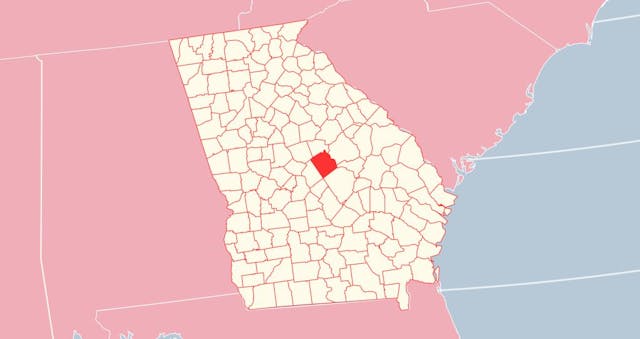Rehabs in Wilkinson
Wilkinson County was formed in Georgia, US, on May 11, 1803. It consists of communities. The county seat is Irwinton. Its total area is 452 sq mi (1,170 km2). According to the 2021 census, the population was 8,808, registering a decrease of -0.78% from the previous year.
Substance use disorder (SUD) is quite widespread. On the contrary, there are not enough Wilkinson County rehabs to help residents. As of the data, there were 10% alcohol-driving deaths in 2019. It had 11 deaths from opioid overdoses.
Drug and Alcohol Evaluation
An accurate evaluation is the first step in the recovery journey. The process begins with an assessment, during which counselors inquire about the visitor's medical background. It allows them to obtain all the necessary information. An assessment is the form of questions, each requiring an honest response from the client.
Then, a lab specialist at the diagnostic center examines the vital signs of a visitor. It lets them assess the effects of drugs on the human body. Through these tests, specialists receive a more comprehensive evaluation.
Lastly, visitors undergo a blood test and screening for drugs in urine. It shows the existence of opioids.
Rehab Programs in Wilkinson County
The lack of rehab centers in Wilkinson County causes some particular inconvenience for residents. In fact, they faced problems in finding the relevant program. Clients have to spend a long time on the search.
This activity is a significant discomfort for those who attend outpatients program. So, visiting other areas for treatment, they should manage to combine recovery with their daily routine.
Detox
If someone wants to stop abusing substances permanently, they must stop using them. However, it is not so easy to leave it at once. It is even dangerous. Therefore, the patient should visit the detox center until the final cleansing. Specialists in this field monitor the client 24 hours a day and provide the necessary assistance when necessary.
Inpatient (IP)
Individuals whose doctors have assessed severe drug and alcohol addiction should enter IP after detox. Although they have wholly cleansed their body of chemicals, they still need 24-hour care and follow-up. Otherwise, relapses will occur. And this means that the client will start using the substances again, which causes more addiction.
For this purpose, high-level specialists have developed specific healing methods. By attending there, a person stays away from substances. Some of them consist of therapies, education, and physical activities.
Outpatient (OP)
Less-addicted people take part in the outpatient level of care. Here, members gather in groups and participate in consultations. At this time, everyone is sharing their experiences of coping with abuse. Generally, one therapist leads these meetings. The expert also asks vital questions that can lead to the cause of the abuse.
Also, clients have individual meetings with the doctor one day a week. Here they find out what kind of care patients need. It helps to tailor the cure plan to their needs.
Partial Hospitalization (PHP)
PHP is designed for those who have a supportive environment at home. Since this level somewhat replaces the residential option, an individual may choose PHP.
People here receive the same care as in the hospital. However, they spend nights at home. PHP offers therapies, medical management, mental health counseling, and activities.
Payment Options Without Insurance
Clinics accept different payment methods. Some facilities only accept cash. Luxury centers that provide complete care accept various payment methods. Most of the time, some medical centers offer financial support to the needy.
Depending on the kind of support an individual needs, they can apply to the appropriate center. However, customers must visit another province or state.

